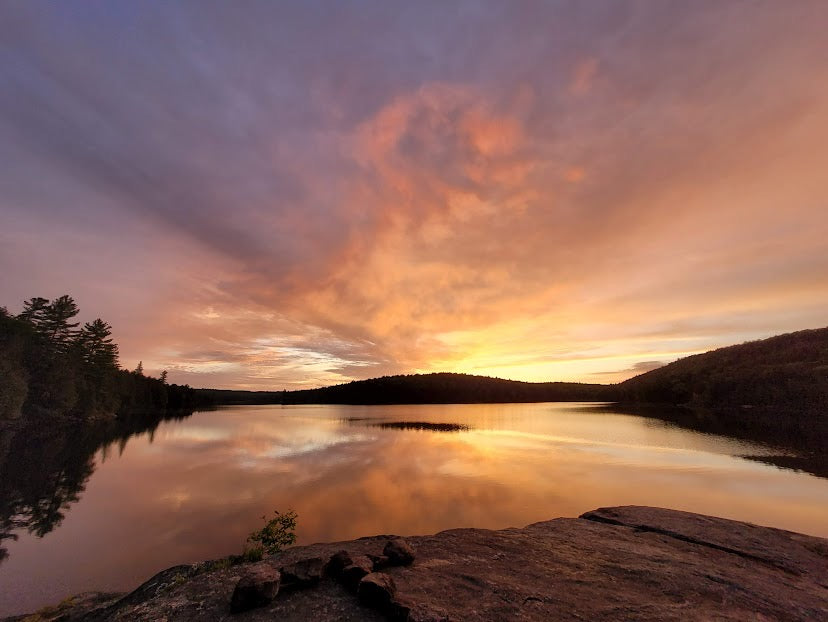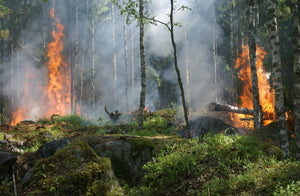Backcountry camping offers a unique opportunity to connect with nature and enjoy the beauty of the great outdoors. However, it's important to remember that with this privilege comes the responsibility of protecting and preserving the natural environment. One way to minimize your impact on the land is by practicing 'Leave No Trace' principles.
My first time camping was in high school back country camping in Algonquin Park. We stopped for lunch and I had an apple. When I was finished I did what I thought was fitting, throw the apple core as far as I could into the forest. I was quickly told off by one of the trip leaders and was explained this idea and principle of 'Leave No Trace.'
Although an apple core is biodegradable and as I figured an animal would gladly snack on it. Apples are not native to the park and that apple core could lead to introducing a new plant species, changing the ecosystem.
Leave No Trace is a set of outdoor ethics that promotes responsible use of natural resources and encourages people to leave the environment in the same or better condition than they found it. Here are the seven Leave No Trace principles to follow when backcountry camping:
-
Plan ahead and prepare: Proper planning can help minimize your impact on the environment. This includes researching the area, obtaining necessary permits, and packing appropriate gear and food.
-
Travel and camp on durable surfaces: Stick to established trails and campsites to avoid damaging vegetation and wildlife habitats. Use designated fire pits or stoves for cooking and avoid building new fire pits.
-
Dispose of waste properly: Pack out all garbage and leftover food. Human waste should be buried at least 6-8 inches deep and at least 200 feet away from water sources, campsites, and trails. Bring a trowel to dig a hole for waste disposal. Better yet, relieve yourself peacefully on a thunderbox!
-
Leave what you find: Do not disturb natural or cultural features, such as plants, rocks, or artifacts. Leave them for others to enjoy.
-
Minimize campfire impact: Use established fire pits or stoves and only burn small sticks and twigs. Do not collect wood from live trees and is encouraged not to use standing dead trees.
-
Respect wildlife: Observe wildlife from a distance and do not feed or approach them. Store food and garbage in bear-resistant containers to prevent attracting wildlife to your campsite.
-
Be considerate of other visitors: Keep noise levels low and respect other campers' privacy. Yield to others on the trail and follow rules and regulations posted by park authorities.
By following these 'Leave No Trace' principles, you can help preserve the natural environment for future generations to enjoy. Remember that even small actions can have a significant impact on the land, so it's important to be mindful of your actions when camping in the backcountry.
Joel Heineman
Stix & Stones
Social Media Manager




